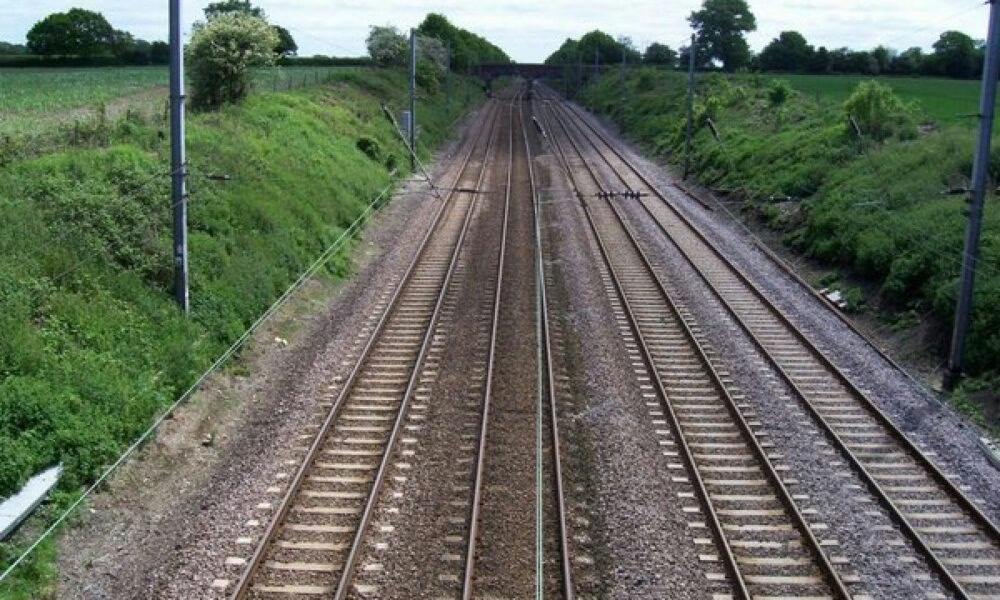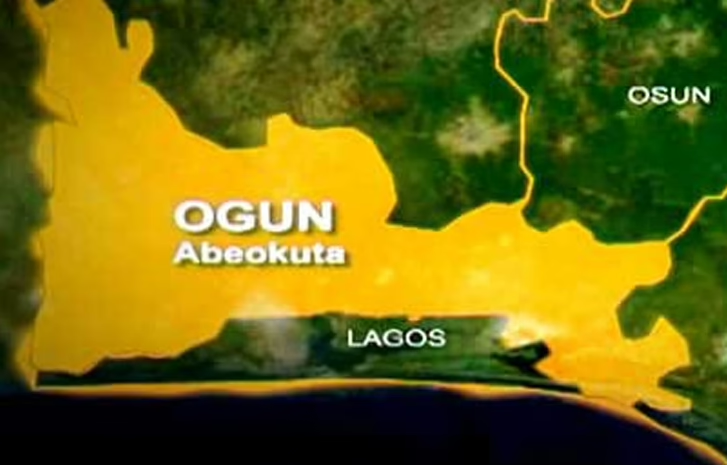• Demand constant power supply, prepaid meters before tariff increase
• Vow not to pay for prolonged blackouts anymore
By Olakunle Olafioye (Lagos), George Onyejiuwa (Owerri), John Adams (Minna), Ighomuaye Lucky (Benin), Okey Sampson (Umuahia), Tony John (Port Harcourt), and Scholastica Hir (Makurdi)
There is anger across the country and a growing rumble against the recent decision to astronomically hike the tariff paid by consumers for power supplied by the electricity distribution companies.


The current increase in tariff was approved by the Nigerian Electricity Regulatory Commission, NERC, which also specified the tariff per kilowatt/hour to be paid by consumers under different bands (A to E).


As stated by NERC, consumers in Band A, who are supposed to be supplied 20 to 24 hours of electricity per day are to pay N225 per kw/h. The NERC also stated that the increase would only affect consumers in Band A in the meantime, stressing that the increase in tariff would eventually trickle down to the other bands in due course after necessary parameters had been met.
But contrary to this clear regulatory declaration, some DisCos quickly implemented the tariff increase across all bands. One clear example of the violation of the NERC regulatory directive was the Abuja Electricity Distribution Company, which was promptly fined N200 million and ordered to refund the new tariff paid by consumers under bands B to E.
Since the news of the tariff increase broke, there have been angry reactions by the generality of consumers, ranging from corporate bodies, institutions, faith-based organisations and families, all of whom would be negatively impacted by the new tariff structure.
Sunday Sun correspondents across the country in this report x-rayed the situation.
IMO
In Owerri, the capital of Imo State, which styles itself as the Eastern Heartland, the whole stretch of Tetlow Road which runs from one end of the metropolis to the other is known as the state’s version of the popular Computer Village in the Ikeja area of Lagos State.
Customers who go to the area for one issue or the other have to talk at the top of their voices because of the deafening noise of the generators as this important business district is constantly without electricity.
But curiously, Prince Collins, who repairs cellphones told our correspondent that he learnt to his consternation that the Enugu Electricity Distribution Company ( EEDC) had placed Tetlow Road on its Band A list, which means he and others will have to pay N225 for a kilowatt of electricity used per hour.
Collins wondered how that could be, given that the area hardly enjoys three hours of electricity in a whole day and that all businesses in the area use generators to power their operations.
“We don’t enjoy electricity for three hours in this area of Owerri and only use our generators to power our business. But we were told by the EEDC that we are going to pay N225 for a kilowatt of electricity which is their new rate. And that we are now in Band A which means we are supposed to enjoy 20 hours of electricity in a day. We just want the EEDC to at least supply us electricity for eight hours if they can do that, that would be okay,” Collins said.
Madam Eunice Nnadi, who operates an eatery on Manns Street, a walking distance from Tetlow, through Ajoku Street, told Sunday Sun that she and other people in the area had not had a steady electricity supply for months, adding that even on the rare occasions when power was “flashed” at all, the current was so low that it could not even power anything.
When asked if she was aware of the band her street falls under, Mrs Nnadi confessed that she did not know, but only heard that the tariff for electricity had increased.
This is the general situation in Owerri, the state capital of Imo, as the majority of residents and business owners do not know which band they are classified in the new electricity tariff regime.
However, most residents who spoke to our correspondent noted that the EEDC renders very poor quality services, saying that the DisCo needs to make substantial improvements in every aspect of its operations.
Mr Uche Nwaka, who owns a confectionery business on Road 7, Umuguma Housing Estate in Owerri, while lamenting over the unreliable power supply from the EEDC said: “What we want is efficient service from the EEDC, but we are not getting it. Last year, all the residents in this area had to contribute money for a new transformer, including paying for it to be mounted by the officials of the EEDC. But this should be the duty of the EEDC to replace the transformer because it belongs to them. Whenever there is an electricity supply, you will see the officials of the EEDC coming for disconnection and it is every month. As a businessman, if I have at least 16 hours of electricity a day it will reduce my daily cost of operating a generator. But we have been suffering bad service from the EEDC.”
In the villages, the experience is even worse as most of them who run on estimated billing hardly get light. In Orogwe community in Owerri-West Local Government Area, which is about seven kilometres to the metropolis, the EEDC hardly give them light. When the town complained to EEDC officials, they told them that they are sharing a feeder with other neighbouring communities and, therefore, had rotation and load-shedding.
A native of Orogwe, Mr Onyewuchi Onyekwe, who contacted the EEDC officials complained to the officials on how the community was starved of power every week and when they eventually get one, it will be low current that lasts no more than 10 minutes.
He said that it was after his complaint that the community started seeing up to two hours light once in awhile while the EEDC always come to the town to collect money for estimated bills, which power was not consumed by the town.
An official of the EEDC at the Owerri office who spoke to our correspondent on the condition of anonymity, because he did not have the authority to speak said that the issue of poor electricity supply was not entirely the fault of the company as it neither generates nor transmits, but only distributes, noting that the DisCo lost revenue due to recent glitches in the national grid.
“We are losing revenues because of the glitches in the transmission of electricity supply from both the generation and transmission companies. As you know, we only distribute what we get and that is the problem,” the source said.
LAGOS
There is confusion and controversy galore in the Alagbado area of Alimosho Local Government Area of Lagos State as most electricity consumers claimed that their categorisation into various bands does not synchronize with explanations given by the Ikeja Electric on the band categorisation.
A resident of Suberu Oje, one of the communities in the area, Mr Taiwo Oseni, who confirmed that his area of residence is categorised into Band E, said that he could not remember the last time there was power supply for close to three hours in his community.
“If they claim that those in Band E enjoy between four to eight hours of electricity daily then those of us living in this area should not be categorised as belonging to Band E because we hardly have up to two hours of electricity in recent months.
“For instance, as I speak with you now we are yet to have power supply today. It’s just a few minutes to 7:00 p.m now. So, when and how can we have light for close to eight hours when we are yet to experience a single minute of power supply at a time when people are preparing to retire to bed for the day? The entire band categorisation is a fraud and plain deceitful. This government has lost it irredeemably,” Oseni said.
Noting that the last time he recharged his prepaid meter was in February, he said the units he bought were still intact due to the poor power supply to his area.
The story is not different in the other neighbouring communities like Adura, Kola, Aminkanle and Meiran where most residents feigned ignorance of the band they belong to while some, despite their failure to confirm the category of the bands their areas fall, presumably believed they belong to Band E since they hardly have close to eight hours electricity daily. “Power supply to my area is abysmally poor. For instance, I can’t remember the last time I used my freezer to preserve food since January when everything I put in it got spoiled because I travelled just for three days,” Bisola Oloyede, a resident of Aminkanle, said, adding: “If I decide to make a rough calculation of the number of hours of electricity we have used in April, it can’t be up to 20 hours. On the average, that is about two hours per day. The last time I checked, we still have close to 100 units on our prepaid meter from the 230 units we bought since early March. So, without even bothering to confirm our Band, I know it is Band E except there is another band worse than E.”
NIGER
Despite playing host to four hydroelectric dams and contributing over 60 per cent of the electricity needs of the country, the situation of power supply in Niger State is not different from the general situation across the country.
The state has remained in perpetual darkness with both government and commercial activities at the lowest ebb.
Niger State prides itself as the power state because of the presence of the four hydroelectric dams in the state, namely Shiroro, Kainji, Jebba and now Zungeru, but the current situation points to the fact that power is far from the state.
The current electricity situation in the state can be likened to that of a professional carpenter without a bed in his room. No part of the state can boast of six hours of uninterrupted power supply except the few privileged ones connected to the 33kwa lines otherwise referred to as Band A.
Out of the 25 local government areas of the state, only four (Minna, the state capital, Suleja, Kontagora and Bida) are connected to the 33kva (Band A) line and less than five per cent of the population enjoys it.
According to a senior staff with the Abuja Electricity Distribution Company (AEDC), who spoke to our correspondent on the condition of anonymity, those on the 33kva line (Band A) enjoy 24 hours of electricity supply every day except when there is a fault.
“Unfortunately these categories of customers are the highly placed individuals in the society and they hardly pay for what they consume except a few companies that are connected to it.
“I can tell you that with the new tariff increase, none of these people can afford it even though they are highly placed people. They find it difficult to pay for the current bill and not to talk of the new increment.
“Even the companies that are paying now, will find it difficult to pay the new tariff and run their companies efficiently. It’s either that many of them will sack their workers or fold up their businesses, and that will have serious implications on the economy”, he said.
However, the over 2.5 million people in the remaining 21 local government areas are connected to 11kva and enjoy less than seven hours of electricity supply every day, and to worsen the plight of these consumers, there is no particular time fixed for the six hours of electricity supply in a day.
Most small businesses are beginning to fold up due to the epileptic power supply as most of them could not afford to run their business with fuel or diesel and still make any profit.
Abdullahi Mohammed, a grinding engine operator in Minna, told our correspondent that the poor electricity supply has forced him to abandon his grinding business to do commercial tricycle business, saying that when the situation became unbearable, he decided to find a way out to be able to feed his family.
“I decided to leave the grinding engine business because there is no light. They will give you only three hours in the daytime and three hours in the night. There is no way a business that depends on electricity can survive in the current situation.
“What serious business can someone do with six hours of electricity supply in a day? That was why I left the grinding engine business to start operating commercial tricycles so that I can feed my family”, he added.
However, worried by the poor electricity supply to the state, the Niger State House of Assembly recently urged the state governor, Rt Hon. Umar Mohammed Bago, to urgently begin the process of pulling the state out of the jurisdiction covered by the Abuja Electricity Distribution Company (AEDC).
The Assembly said with the state playing host to four hydroelectric dams, accounting for 60 per cent of the electricity supply in the country, there was no justification for the state not enjoying a minimum of 20 hours of electricity supply in a day.
The legislature stressed that the people of the state had been pushed to the wall and would no longer tolerate the continued blackout by the distribution company.
The house gave the directive when the management of the AEDC, led by the Chief Operating Officer, Mr Okwuokenye Chijioke appeared before it to explain the continued epileptic power supply to the state.
This was sequel to a motion on matters of urgent public importance brought before the House by the member representing Bida 11 Constituency, Hon. Mohammed Haruna, requesting the house to invite the regional manager to appear before it to explain the deteriorating power situation in the state.
The motion was overwhelmingly supported by the members of the house who described the services being offered by the distribution company as unacceptable and warned that if nothing was done to improve the situation the assembly would not hesitate to compel the state government to pull the state out of AEDC-controlled states.
EDO
In Edo State, the majority of consumers in Band A have been metered and would no longer contend with the long-running migraine and thievery called
estimated billing.
The Chief Technical Officer of Benin Electricity Distribution Company Plc, BEDC, Jonathan Lawani, an engineer, revealed the news that affected Band A consumers would find it cheery as they would be able to monitor and restrict their consumption to maintain a reasonable power consumption level.
He disclosed that consumers on the Band A lines do not experience load shedding, adding that they would receive at least 20 hours of power supply.
Lawani said that the major challenge the company contends with is the low generation by the Gencos, stating that when there is an improvement in gas supply everything would be normal again.
On his part, Mr Osazee Edigin, one of the electricity consumers, said that the recent hike in electricity tariff for Band A customers who enjoy up to 20 hours of electricity supply by the Federal Government and the subsequent plan for an increase across the board for all categories of customers was ill-conceived and insensitive, and a demonstration of the government’s indifference to the economic plight of citizens and businesses.
Edigin said that the government decision was taken at the wrong time.
ABIA
People in Abia have challenged the placement of Abia under Band A, stating that with a strict interpretation of the requirements for the category, Abia could not by any stretch of the imagination qualify to be categorised under the premium band.
Investigations carried out by Sunday Sun reporter indicated that no part of the state gets power supply up to 10 hours not to talk of 20 hours per day.
In Umuahia, the state capital, two areas, the Government House and Okwulehie Street axis are areas that could be said to have a semblance of constant light, but they do not last more than six hours on average, on days they were lucky to have light in the first place.
Chima, a resident of Okwulehie, while acknowledging that the area appeared to enjoy steady power supply, said the reality was that power supplied to them on the days they were lucky to have it, never lasted more than six hours.
“Although people believe we do have constant power around this area, it is a known fact that in the real sense of it, we do not enjoy constant power supply at all.
“As I speak with you, on the days they will give us light, they will bring it around midnight, before 6:00 a.m the following day, it will be off. And it has been like this for years,” he said.
Another resident, Innocent, who works with one of the agencies located within the Government House area said they have not enjoyed constant light in the broader sense of it over the years.
He opined that offices within the area do not have light for more than five hours a day, and in some days, they do not have it at all.
“When you talk about constant power supply up to 20 hours, count this place out. I am yet to remember a day when we had light in the office for more than five hours and there are days it’s not more than two hours.
“So, when the situation is this way, one cannot say the area has a constant power supply,” Innocent said.
Others who spoke to Sunday Sun raged that they still get outrageous bills despite not having a regular power supply.
Emmanuel who lives on Omuma Road in Aba, similarly confirmed that people in his area are terrorised with outrageous estimated bills despite not having any reasonable supply of electricity.
He said: “I live in a one-bedroom apartment located in the Omuma Road axis in Aba. Despite the fact we don’t have a steady supply of electricity, we still receive high bills. They sent me a bill of N21,000 which is even higher than the amount I pay as house rent.”
Emmanuel advised the Federal Government to first ensure that Discos supply constant power to the customers and at the same time give them electric metres before any increase in tariff could be justified.
“Nigerians are not presently getting value for the amount the DisCos charge them for electricity. If the Federal Government wants to justify the increased electricity tariff, they should first mandate the DisCos to provide constant power supply to their customers and also provide meters to them so that in the end, one could pay what is commensurate with the energy consumed,” he said.
Expressing his dismay over the 240 per cent increase in tariff, Emmanuel wondered how many average homes in the country would be able to pay such a high tariff and still meet up with other responsibilities.
RIVERS
Many residents of Port Harcourt and its environs in Rivers State claimed ignorance of the categorisation of electricity consumers under different bands based on the amount of electricity consumed.
The residents, who spoke to Sunday Sun on the recent hike in electricity tariff, said that before the Federal Government would introduce any purported unfamiliar people-oriented policies, the citizens should be sensitized and the awareness widely spread.
Mr Sunny Zorvah, a journalist, said that consumers do not know the band under which they fall, saying there is a need to sensitize consumers by creating awareness of the operations of the electricity distribution companies.
He said that people in his area enjoy power supply for six hours.
According to him, the residents get 80 per cent estimated bill and 20 per cent prepaid.
Mr Zorvah said each period of power supply lasts two hours, adding that they do not experience load shedding regularly.
He said that people in his area do not get value for the money they pay to Port Harcourt Electricity Distribution Company (PHEDC), pointing out that there were weeks the residents would not have power supply for three days.
In the face of the poor power supply, the people revealed that frequent failure of fuses of the transformer serving the area has been a major challenge.
In this manner, they also contend with the theft of overhead distribution cables.
Similarly, Mr Prince Wiro, another journalist and human rights crusader, said that he and many people in his locality do not know the band they fall under because of a lack of sensitization.
He disclosed that the residents get between four and five hours of power supply daily, and the consumption is estimated, leading to outrageous bills which they get at the end of each month.
Speaking too, Mr Livingstone Wechie, a public commentator, said that the concept of bands for electricity consumers sounds strange to even the most enlightened consumers in Nigeria, saying that “it can best be seen as a cliche and this is the reality.”
According to him, it is just an attempt to christen the highly corrupt sector with an undeserving baptismal name. Just like the words “palliative” or “cushion the effect” when they became very popular in those years, saying that the band as it were, is unknown in the consumer’s usage of electricity because it is tied to an unrendered service.
He argued that if there is truly any such thing as a band as advertised, it would be right to state that consumers do not know their bands because to be fair, “who sees electricity in this country to talk of 20 hours. This is not ignorance, but the reality of a mockery.
“In my area, we do not get up to two hours of electricity in a day. There are places that do not get power for months. So, the ‘band’ thing is a brand name to give the hike a good name as though the problem is the payment when the issue is the cartel racketeering in the sector and gross technical incapacity. Nigeria’s national power grid collapsed 46 times from 2017 to 2023, a report by the International Energy Agency said.”
He claimed that a number of the consumers get estimated billing which appears preferable to the power distribution companies.
“Unfortunately, when people apply for prepaid meters, they are left to their fate for several months before they get it. The population using prepaid billing largely complain of the irregularities in the billing system. This is because ascertaining the billing system has become complicated and corrupt to the point that your units are manipulated or irregular with no one explaining to you how it evaporates even when services are mostly skeletal. It is strongly suspected that hikes are often inputed unofficially because the system lacks transparency and disrespects consumer rights.”
Mr Wechie said that it is difficult to say how long each period of power supply lasts.
“We have been running on generator for hours now and so public electricity supply is abysmal. This is why children in the neighbourhood shout ‘Up Nepa’ whenever public electricity supply is restored. This is common knowledge. Imagine that Nigeria placed 23rd on the ranking, beaten by South Africa (10th) and Ghana (17) in a 2021 rating in Africa. Egypt, Algeria, Morocco, and Tunisia are the only African countries with a 100 per cent constant power supply, according to a report by Business Insider Africa and this is shameful.”
According to him, load shedding is a regular occurrence in Nigeria.
“Load shedding has a severe impact on people’s lives in Nigeria. Power cuts disrupt everything from homes to hospitals to businesses, which has led to severe social and economic consequences as it is currently. Load shedding has been disastrous to businesses, particularly small businesses. Incessant power cuts have led to reduced productivity, stalled operations, and loss of revenue. It has been a recurring decimal that has entrapped economic and social prospects,” he said.
On value for payment, he said: “You can hardly identify any person or group of persons getting value for their money. The issue of the endemic electricity insecurity crisis is one reason businesses are leaving Nigeria in droves. According to Tracking SDG7’s Energy Progress Report in 2023, Energy Connect revealed that about 92 million Nigerians – more than 40 per cent of the country’s population lack access to grid electricity. That makes Nigeria the country with the largest energy access deficit in the world.
“The challenge is that the government has sold out to the electricity cartel. What has become of the power plant recently commissioned by the Abia State government? It has been allegedly shut down because of a monstrous cartel that the government has bowed to. The way to keep Nigeria’s economy down is to kill and bury the power sector.”
BENUE
In Benue State, most residents are yet to understand the band they fall into. While some say there is no sensitization on the issue, others said they may get to find out when their bills are served.
But information provided by the Head of Corporate Communications, Jos Electricity Distribution Plc, Dr Friday Adakole Elijah, showed that places like Gboko road, Makurdi, the environs of Benue State University, Industrial layout environs, behind Low Cost Naka Road, near St James Catholic Church, Ogiri Oko road, opposite PADOPASS, all of which are on 33KV feeder were categorised under Band A.
Equally, some Band A feeders were downgraded to Band B. The places now on Band B include Central Bank, Makurdi, Benue State Government House, Old GRA Makurdi, Wadata area, New GRA, High Level area, David Mark Bypass, opposite NYSC Secretariat, Yima Layout, Wurukum area, Low Level, Old Otukpo road, Peace Village, Naka Road, Mobile Police Baracks, Adeke, Modern Market Road, University of Agriculture, New Otukpo Road, part of New GRA, Kanshio, Gboko Road, Federal Airport Authority, part of Gyado Villa, Airforce Base Makurdi, Otukpo Town, GRA, Makurdi Road, which are all on 11KV feeder.
Also, some other areas on 33KV voltage in GRA, Makurdi town, Wurukum, High Level, Gboko road, Aliade road, JED Regional Office, Otukpo town
entire Gboko town, Lessel, Akpaghiar, Logo LG, and Ukum LGA have also been downgraded to Band B.
According to Dr Elijah, the company has kept devising means of serving their customers better in conformity with their Service Level Agreement, (SLA).
“By so doing we intend to start with our customers on Band A by distributing to them an uninterrupted power supply of a minimum of 20 hours daily,” Elijah said.
Giving details of customer service Bands and their expected duration of electricity supply, Elijah said while band A feeders would have 20 to 24 hours supply, band B feeders would have 16 to 19 hours supply, band C feeders 12 to 15 hours supply, band D 8 to 11 hours supply with band E having 4 to 7 hours supply on daily basis.
He explained that the new tariff approved by the NERC, which took effect from April 3, 2024, only affects those he described as “our premium customers” who are on Band A.
“The review does not affect customers on other bands,” he said.
However, mixed reactions have trailed the increase in electricity tariff and the definition of bands.
Speaking to our correspondent in Makurdi, Mr Terdoo Kenti who resides in Nyon village at Tse Abu said that he gets less that five minutes supply in a day.
“They just will flash and take it back. We are charged on estimated bill. We are not load shedding. The huge bills come monthly. We are not getting value for the money we are paying because the light stays less than five minutes,” he said.
Another resident of Makurdi, Mr David Mzer said: “I stay in an area which falls under Band ‘A’. However, recently, we have been seeing less than 20 hours of electricity supply, especially in the last three days. It was not less than 22 hours until few days ago.”
Mzer, who disclosed that prepaid meters were installed in his compound a month ago, noted that each period of power supply lasts between 4-5 hours.
“They seize and return it within minutes. I am not experiencing load shedding, but some people who are on a different transformer are experiencing it,” he said.
He, however, lamented that he used to get value for the money he was paying for power supply until recently.
Mzer, a piggery farmer and politician, said that the major challenge in his area was the shortage of transformers.
“Many households are on a single transformer. One transformer serving households in my vicinity is overloaded, thereby leading to rationing of power.
“However, my house is on a transformer bought by a member of the community and each household on the transformer was made to pay N300,000 to be connected on it,” he said.
Another resident, Kene Kenneth, fuming that democracy has failed in Nigeria, said: “My reason for saying this is that we never had it this bad during the military era. The same individuals who own these electricity distribution ompanies across the country are mostly politicians, who cornered the system in form of privatization and bought over National Electricity Power Authority (NEPA) just to inflict pains on struggling Nigerians.
“I, therefore, condemn, in the strongest possible terms, the hike in electricity tariff, and call for the reverse or the people concerned should reconsider their stand on the matter.”
Kene who resides at CBN Quarters, opposite Scholarship Board Makurdi, added: “I’m on Band B, that is 11kv. My area enjoys power supply for only one hour out of 24 hours in a day.”
Kene said that they are charged on estimated billing, but stated that the light lasts for just an hour or sometimes 30 minutes.
He said that they are experiencing load shedding and are not getting value for what they pay.
He said the major challenges faced by the people in his vicinity include the estimated billing as well as “serious harassment” from the electricity distribution company on payment day.
In Otukpo LGA of the state, Mr Sunday Ogli, who lives in Otukpo town said that he gets about 10 hours of power supply in a day.
He could not say how long each period of supply lasts as he noted that the light is usually on and off while they are given estimated bills.
He said the distribution company shed load in their area and that they have not been getting value for their money
In Gboko LGA, Serumun Tersoo, a business woman in Federal Low Cost Gboko, said: “I’m still waiting for them to give us bills so I can see which band we fall under. I was told that for those under band A their bill is increased by 30 per cent, but I’m yet to receive any bill.”
Serumun who noted that the Low Cost area usually has almost 24 hours of supply said: “It has dropped to 15 to 16 hours and some times, less than that.
“We are on estimated bill. When light was constant, we were billed between N20,000 and sometimes less, but recently, the bill has risen to between N30,000 to N35,000. The bill has rather increased while power supply has dropped.”
On Tuesday, April 9, 2024, she had light around 12 noon. It was seized on Wednesday morning by 6:00a.m and at about noon when this reporter was speaking to her, power supply had not been restored.
“We get 16 to 18 hours supply. They are not load shedding in my area. For value for money paid, maybe in the past, but not currently,” she said.
Serumun who operates a frozen food shop said: “As we speak, there is fish in my fridge and I’m waiting for light. If I don’t get light, I have to start powering my generator and at the end of the month, they will come with their heavy bills. The value is not really there.
“There is a market close to my shop, Ashange Pa market, they have not for close to two years now and same for nearby communities. They do not have transformer there. The old transformer they had went bad and each time they fixed it, it blow up as soon as they return it. It’s overloaded and the power company or the government, whoever is responsible, should replace it so that the people can have light.
“This hike in tarrif is not necessary at this time. The bills need to be subsidized and light should be constant. If you don’t have light and the bill is increasing, what are you paying for?
“If you go round now, nobody is selling cold water. My neighbour has a salon, she is using generator. If she asks someone to pay N2,000 just for washing of hair, will it make sense? A lot of customers will come and go because there’s no light. It’s really affecting our businesses negatively. I’m spending more on generators to freeze fish and chickens so they don’t spoil. These people should give us light first.”











